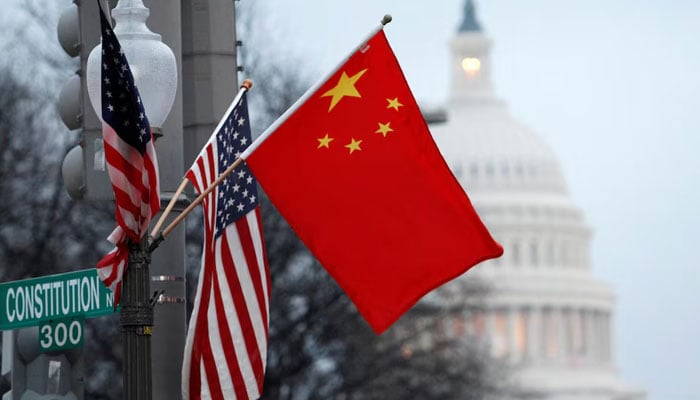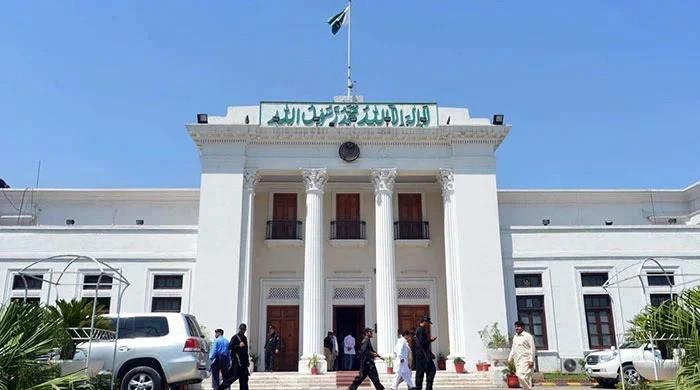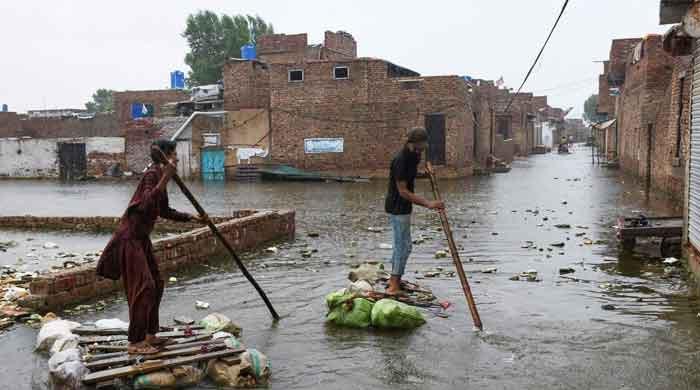The salvation of capital
It seems each global player feels its hegemony is being undermined by actions of others
February 10, 2025

The ongoing trade war between major global players and some important states has raised vital questions about the hegemony of global powers. The United States, China, the European Union, and other states seem to have landed on an economic battleground, readying themselves for relentless attacks.
It seems each global player feels its hegemony is being undermined by the actions of others. This has led to a significant trust deficit between various states, with the close allies of yesterday emerging as the sworn enemies of today, especially in the realms of economy, trade, and commerce.
The spectre of protectionism and the threat of mercantilism haunt the champions of the free-market economy. They fear that a revival of protectionist policies and mercantilist approaches would raise serious questions about the claims of free-market fundamentalists, who have always asserted that laissez-faire is the way forward, with the potential to usher in an era of prosperity and economic progress.
Such pundits of the free-market economy are scrambling to mitigate the impacts caused by the policies of US President Donald Trump.
Trump’s actions and the retaliatory measures taken by other powers clearly indicate that these states seek refuge in protectionism and mercantilism. But the question is: does capitalism’s salvation lie in such an approach? Doesn’t it contradict the basic principles of laissez-faire, which advocate constant growth and relentless expansion? Wouldn’t protectionism lead to the stagnation of capital, halting the tremendous speed at which it has demolished barriers across continents over the last 532 years? Wouldn’t a mercantilist approach plunge not only America and Europe into a new crisis but also deal a severe blow to the global economy?
These states, some of which were colonial masters in the past, can now be described as economic imperialists.
Past colonial powers faltered and ultimately collapsed because of their expansionist policies, which drove them to capture region after region. Their insatiable appetite for territorial expansion forced them to spend immense resources on managing these territories. Their voracious greed for control led them to maintain large armies and bureaucracies, which eroded their economic strength.
For the sake of pomp and glory, they plunged state after state into wars and conflicts. To maintain global hegemony, they carried out ruthless plundering of the territories they conquered, but they also did not hesitate to exploit their own people.
The Roman Empire imposed heavy taxes on its population to ensure the import of luxury goods for its aristocrats, while the British, French, Dutch, Japanese, Spaniards and Portuguese elites enriched themselves by condemning the working classes of their own societies to lives of misery and impoverishment.
It is claimed that the expansionist policies of past colonial powers and global leaders led to overstretching, creating immense difficulties for rulers in metropolitan centres who found it hard to maintain military hegemony and control over captured territories.
In reality, this relentless expansion was one of the factors that led to the demise of several empires, as they were constantly forced to suppress rebellion after rebellion. Since they ruled over vast territories, this became a never-ending cycle. Perhaps this is why we find very few instances of Pax Romana in human history.
Such campaigns proved to be extremely expensive, draining empires’ resources. The Roman expeditions against Germanic tribes and Emperor Aurangzeb’s onslaught against the Marathas and local rulers are just some examples of this depletion of resources.
These campaigns also prompted the rulers of empires to burden their populations with unbearable taxes, triggering internal uprisings in the heartlands of their empires. To quell these uprisings, they employed the coercive apparatus of the state, suppressing their own people.
The simultaneous rebellions in metropolitan regions and peripheral areas significantly weakened these empires, leading some to a sudden collapse while others suffered a slow decline. Their pomp and glory vanished with their demise, leaving behind only ruins that provide insights into the policies they pursued over the centuries.
While the empires of the past and the global powers of ancient times faced terrible fates due to their expansionist policies, modern global powers can only survive if they continue expanding – at least economically – because their strength lies in economic activity, which requires constant expansion.
Capital must explore state after state, region after region, and continent after continent, moving as fast as possible to maximise economic benefits.
While global powers of the past relied on large bureaucracies and militaries to maintain their hegemony, modern corporations do not need such relics. Instead, they have global institutions that receive taxpayer money to sustain their dominance.
The World Trade Organisation and global legal forums that resolve disputes between corporations and states often appear to favour these giant multinational companies, whose turnovers exceed the annual budgets of several states.
Thus, corporations and modern economic powers rely on expansion and access to new markets. They have always thrived due to this relentless drive for growth. The tremendous productive capacity of modern capitalism demands ever-expanding markets, and relentless growth is unthinkable without expansion.
The opening of markets after World War II significantly strengthened American capitalism. The fall of the Berlin Wall consolidated the European market.
The neoliberal policies of Latin America and many states of the Global South, along with austerity measures in advanced capitalist countries, further fueled capital expansion.
Therefore, shutting down markets, employing protectionist tactics, or resorting to mercantilist approaches could prove catastrophic for modern capitalism, which requires the unbridled movement of capital, goods, and services.
Unlike the states of medieval times, the modern world has developed a supply chain system where no country is self-sufficient. The spare parts of a product may be manufactured in China, the raw materials extracted from Africa, and the goods assembled in the US or the EU.
No single country is capable of handling the entire production process or manufacturing finished goods independently.
Communist China and capitalist America are compelled to cooperate in manufacturing and services. Even Beijing and New Delhi find it difficult to ignore each other in economic matters. This new wave of relentless protectionism threatens the entire supply chain system.
If modern global powers want to avoid the fate of past global powers, they must not hesitate to pursue economic expansionist policies, as capital thrives on movement. It made tremendous strides when allowed to bring the entire world under its domain, abolishing archaic economic practices, connecting states into a global village, and making them highly interdependent.
Therefore, capital must be allowed to expand its tentacles – this is where it's salvation lies, and this is what ensures its very existence. Any attempt to halt its movement would amount to delivering a fatal blow to the very system that is founded on laissez-faire principles.
The writer is a freelance journalist who can be reached at: [email protected]
Disclaimer: The viewpoints expressed in this piece are the writer's own and don't necessarily reflect Geo.tv's editorial policy.
Originally published in The News











